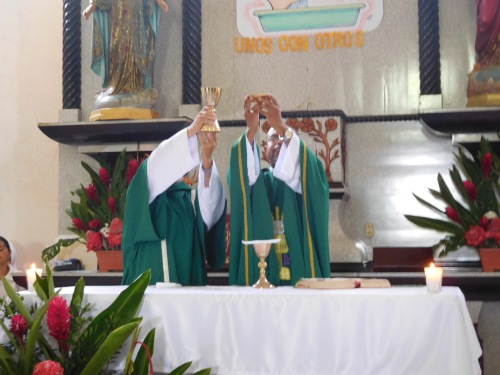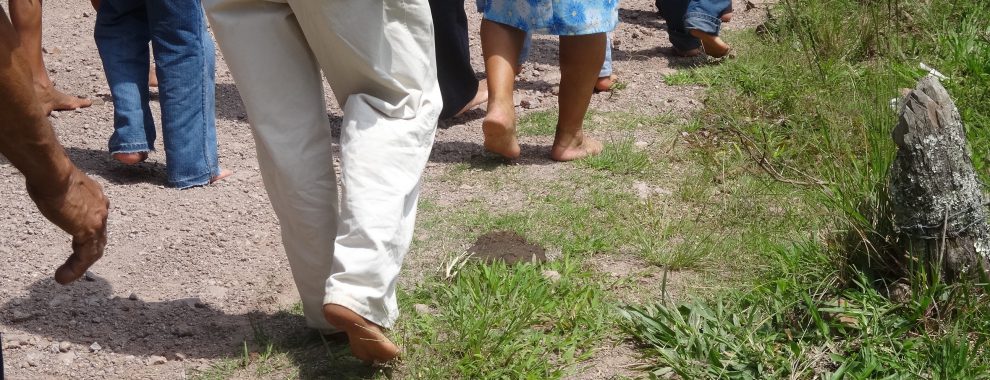I will probably preach two or three times this weekend – in Spanish. But I wanted to share what has inspired me this week as I prepare for preaching.
The two lectionary texts that most inform my preaching are Paul’s account of the institution of the Eucharist in 2 Corinthians 11: 23-26 and Luke account of the feeding of the multitudes (Luke 9: 11-17)
I will obviously preach something a bit different – depending on the congregation and what is happening here in Honduras this weekend, but I think my English-speaking friends might find something helpful in these initial thoughts.
I had a little time this week and watched an interview by Salt and Light TV of my friend Jim Forest. At one point, Fr. Rosica asks Jim what has sustained him. Jim didn’t even let Fr. Rosica finish the question but blurted out, “The Eucharist.”
Does the Eucharist sustain us? Is it what we need to go on and live?
Yes, for it is an intimate way in which we encounter our God. It is the food that sustains us – for it is the God who gave himself, who emptied himself to become human, who handed himself over, even to death, out of love. He is the bread that is handed over, given for us. The Eucharist is the Blood of the one who poured himself out for us – to the point of shedding, of pouring out his blood.
Do we long for this Bread of Life and Cup of Salvation that sustain us?
I recall a photo I took in 2008 at a Mass in a village. The priest is offering the Body of Christ to a man with his hands outreached. You cannot see the priest’s face – only the Body of Christ in his hands. This picture speaks to me of a longing for the Bread that sustains us.

When we really long for this Bread, we will be transformed by the Body and Blood of Christ. No longer alone, separated with others, when we receive the Eucharist Christ wishes to transform us into Himself, so that we can pour ourselves out like Him.
There are two actions of the deacon during the Eucharist which often move me profoundly.
During the Preparation of the Gifts, the deacon pours the wine into the chalice and then a few drops of water. The prayer, which I always pray in English, is a call to let God make us like himself:
By the mystery of this water and wine, may we come to share the divinity of Christ, who humbled himself to share our humanity.
God wishes to transform us into His very being, his divinity. This is what is often called theosis, divinization – found clearly in Eastern Christian theology, but also found in Saint Thomas Aquinas.
The Eucharist can transform us.
But how are we transformed?
I am also often moved when I , as a deacon, I raise the chalice with the Blood of Christ at the end of the Eucharistic prayer. How often I recall how this is the Blood poured out, shed, for us; am I willing to pour out my life, to shed my blood in the footsteps of Jesus?

This transformation is not just something “spiritual.” I believe it is a transformation of our whole way of being. Am I willing to let myself be poured out?
For me, the Gospel of the multiplication of the loaves and fishes reveals how we are called to be transformed.
The disciples see the hungry crowd, but they tell Jesus to send them away. They looked for an easy way out, the ultimate call for “each man for himself.” Not only do they not want to take responsibility; they want Jesus to send them away, so he gets the blame.
But Jesus responds, calling for a real transformation, “You, yourselves, give them something to eat.” Don’t look to me for an easy way out; do not ignore the needs and look away. You have been transformed by my love, now do something.
And so, transformed, we are called to share. We are pushed by God to share.
This is the message I hope to share this weekend:
The Eucharist sustains us, transforms us, and impels us to share.




